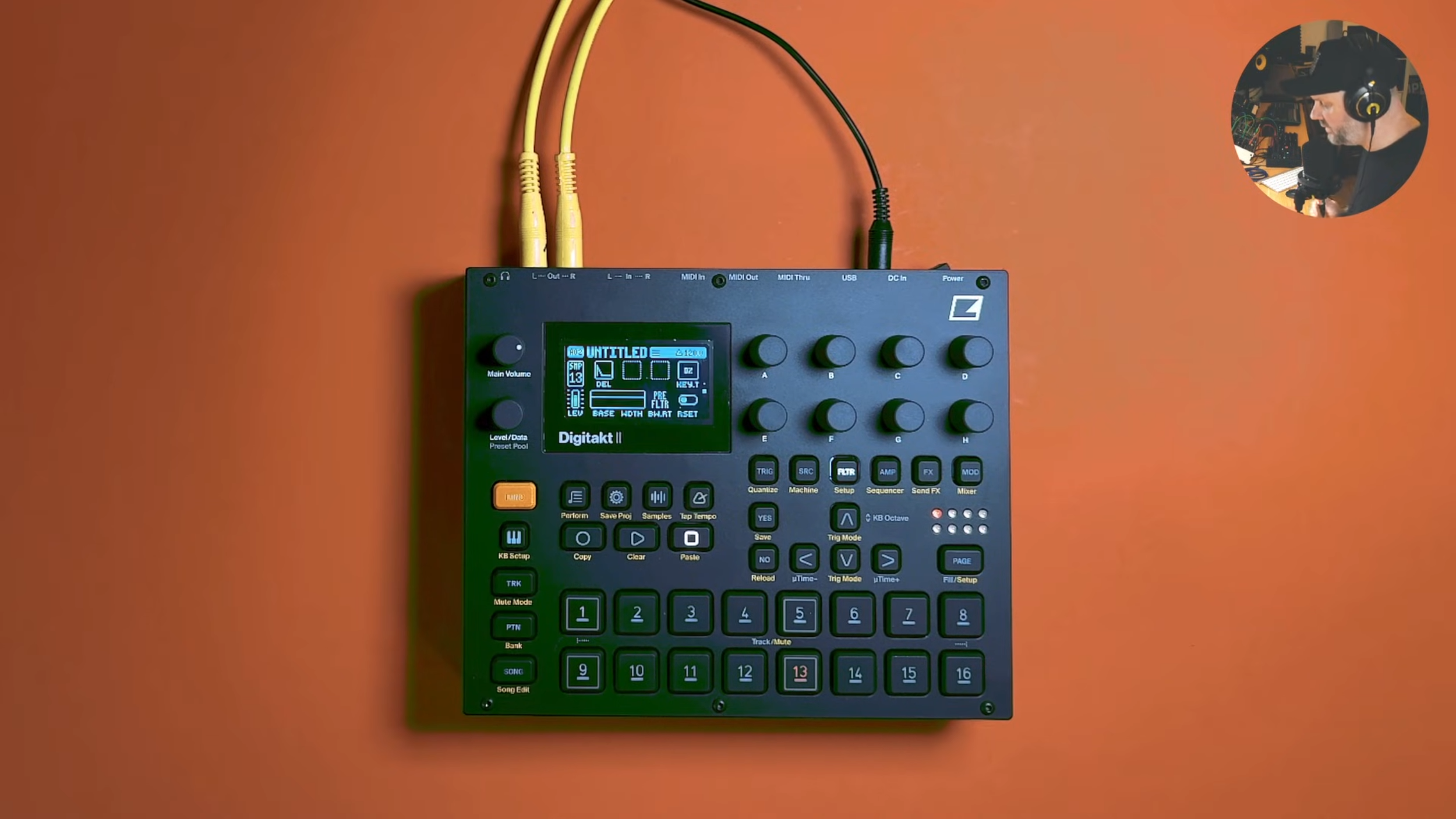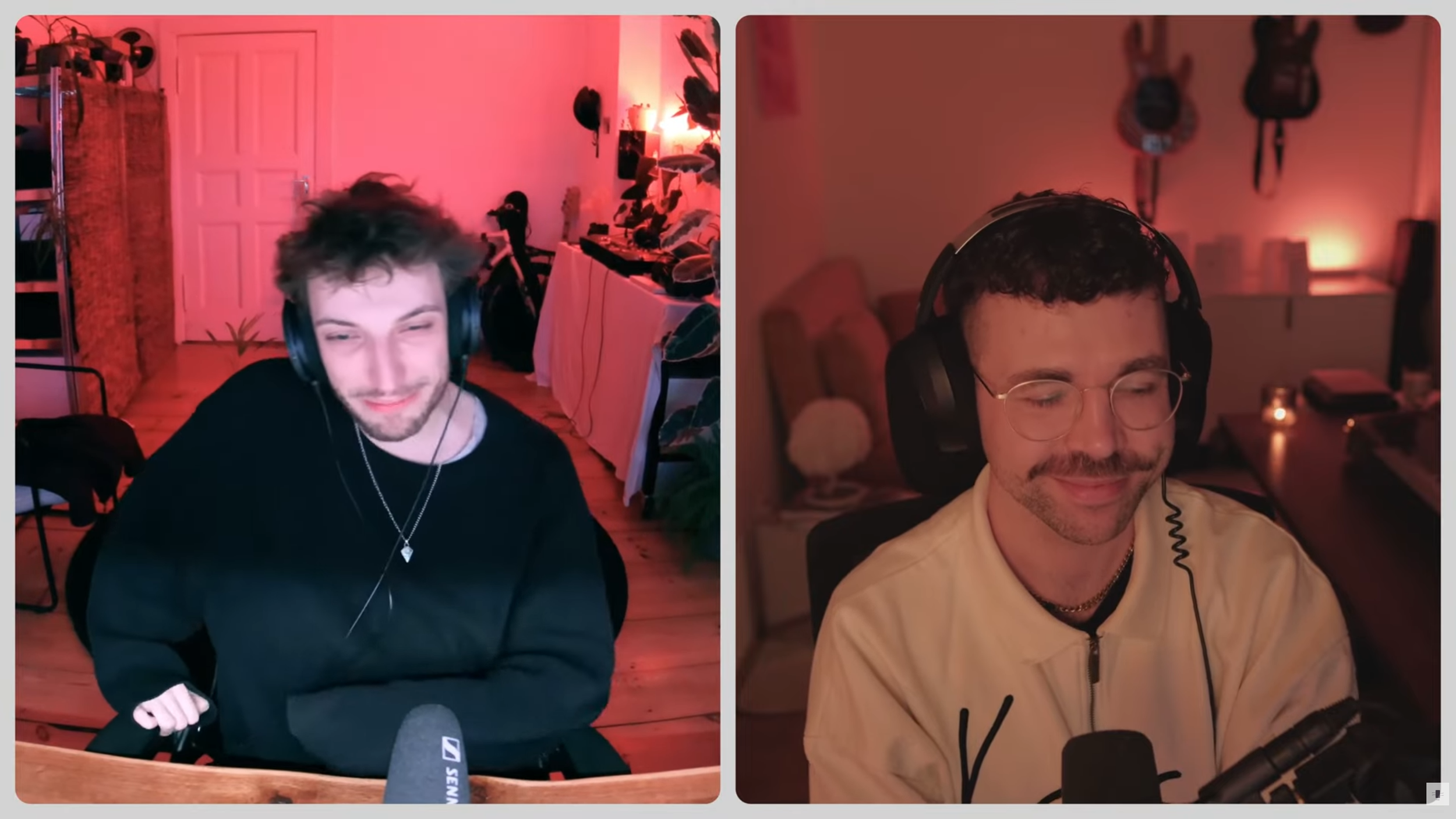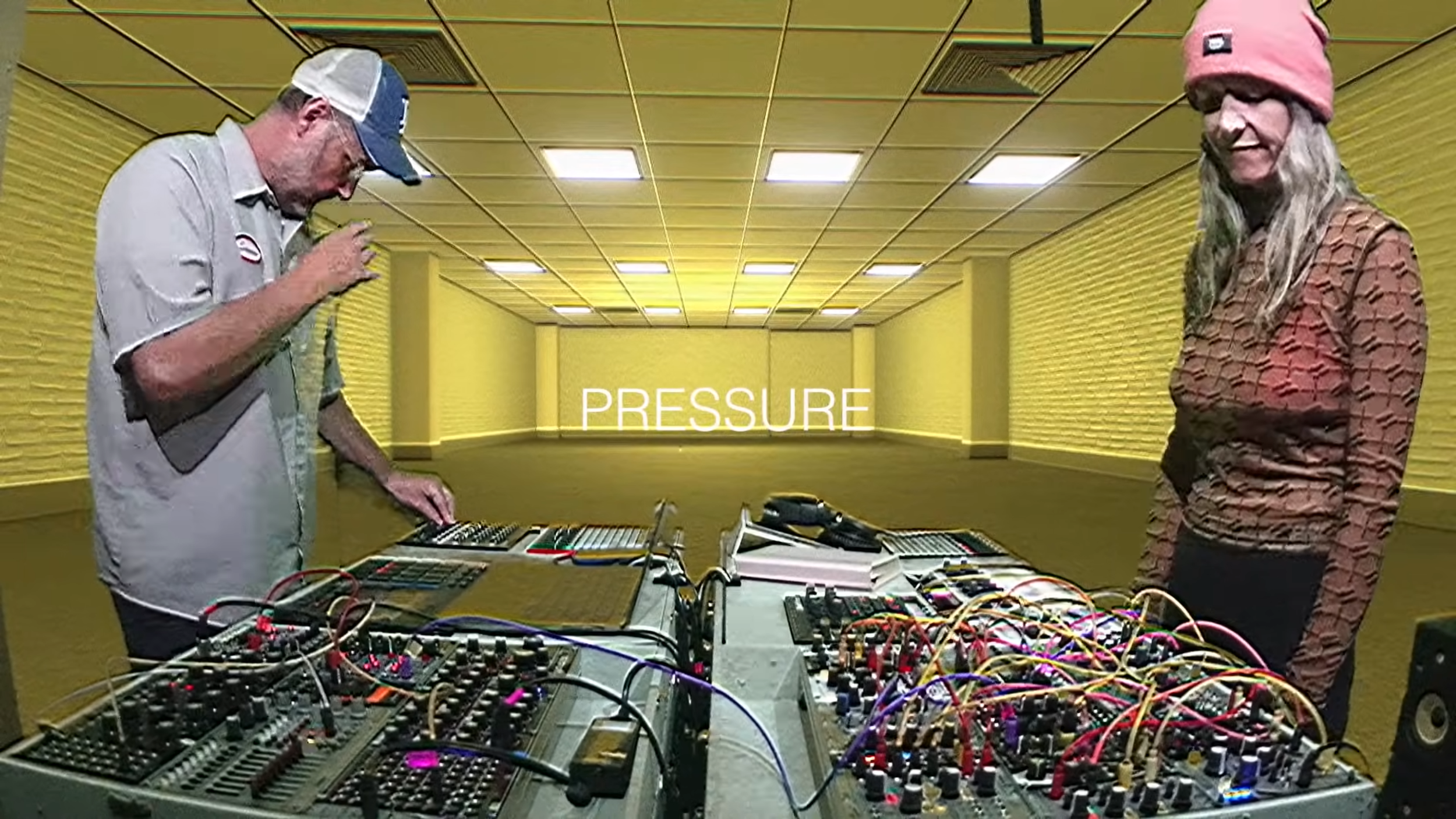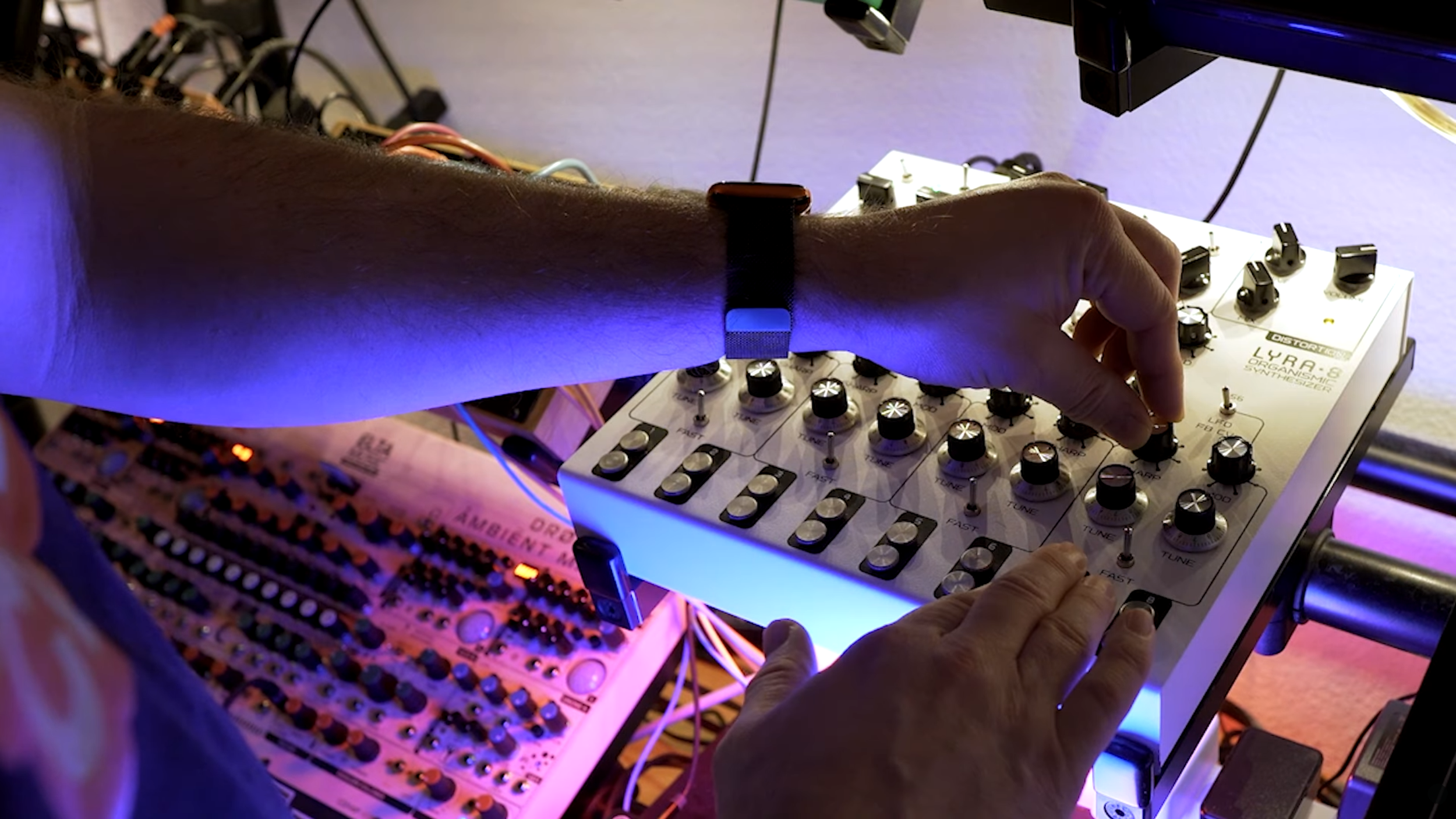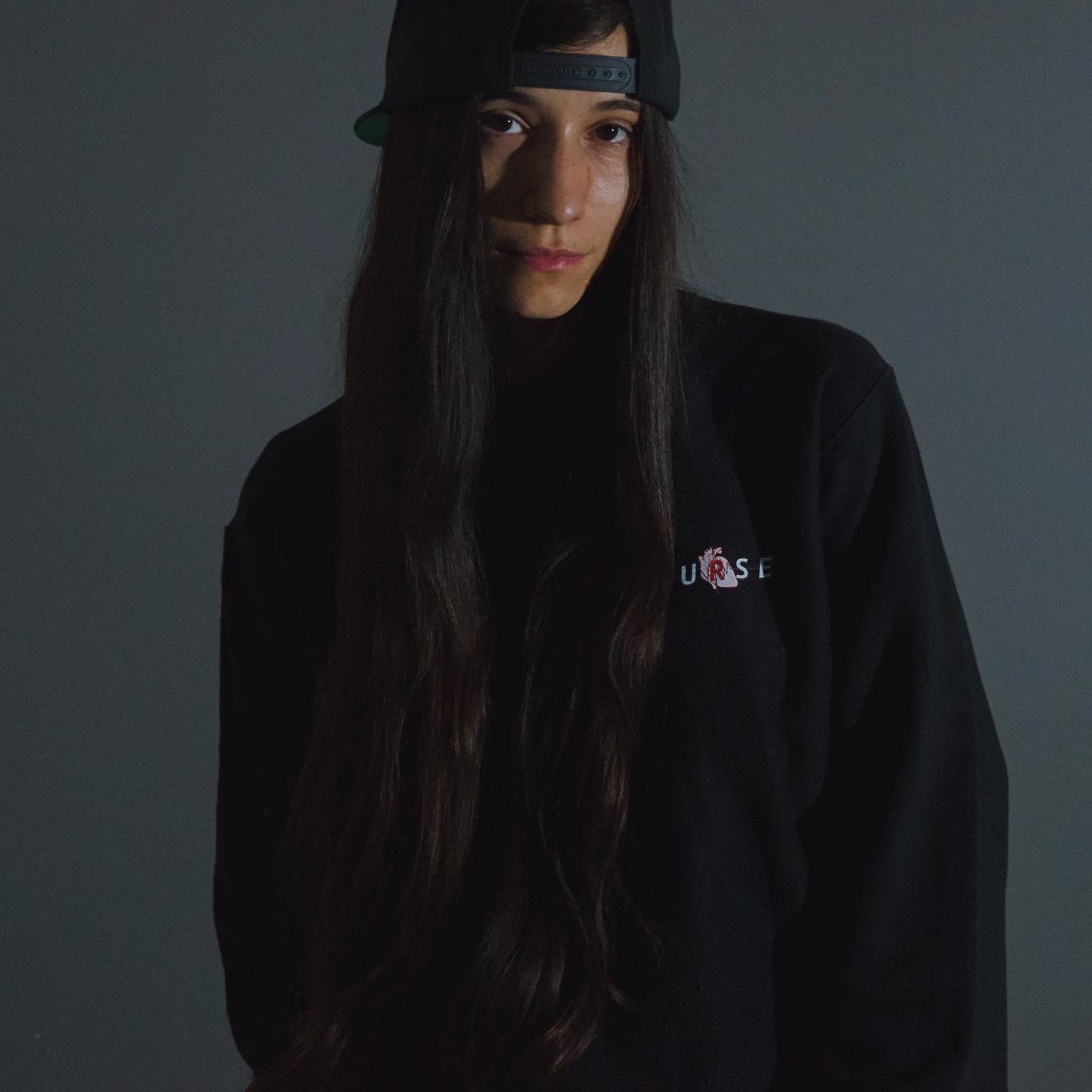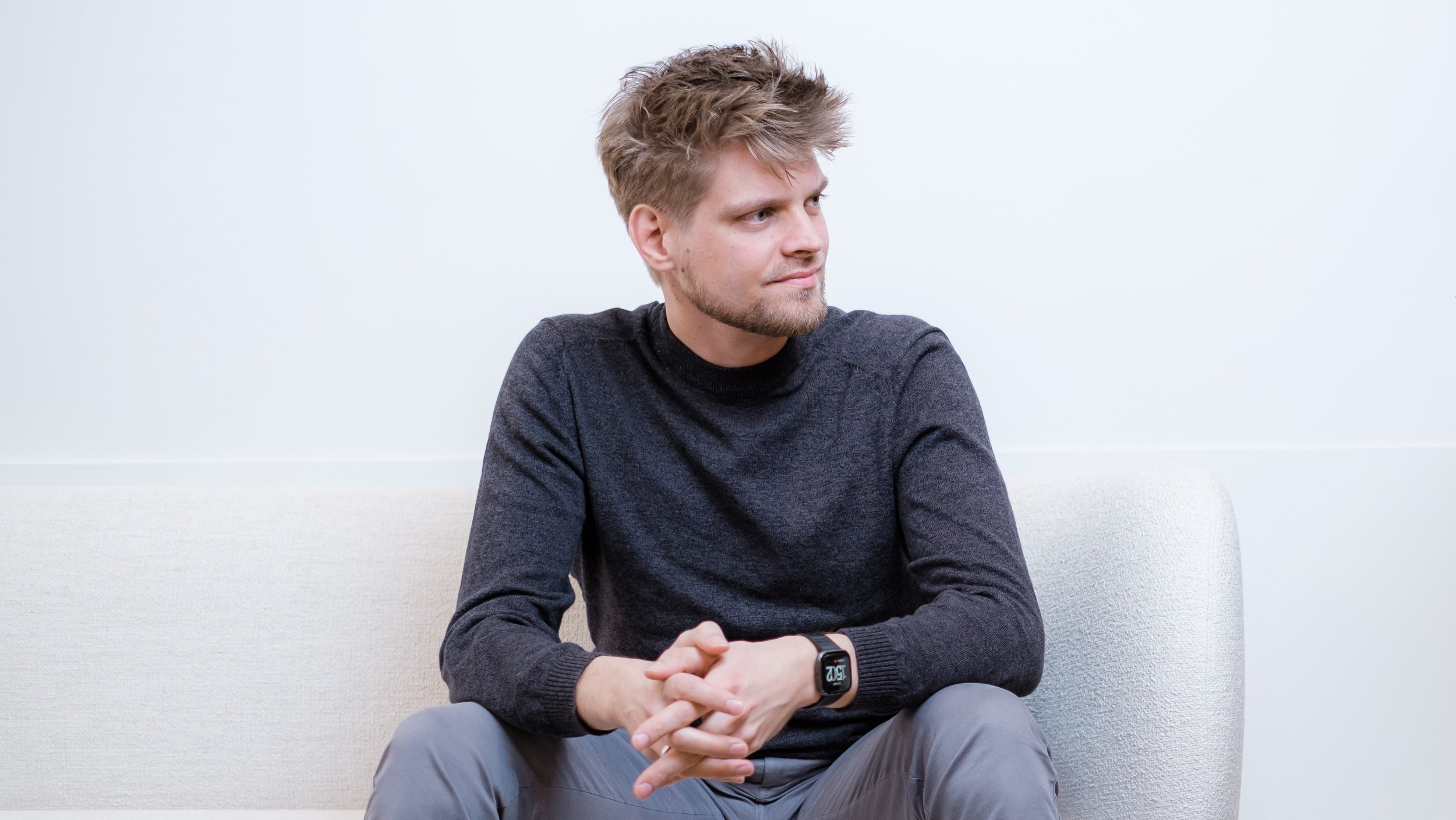
WEBZINE # 6
Behind The Scenes with Ikigai Cosmonaut
Hangout with Sholinger
Spotlight: Federico Sauter
Get To Know CALCK
And more…
Introduction
Hi friends, thank you for taking the time to read this new edition of PVC Magazine. It always feels like the right way to express our gratitude for your continued support, especially as you prepare to enjoy a well-deserved winter holiday.
As we approach the end of the year, reflecting on our accomplishments in 2023 fills me with pride and joy. Throughout the year, we celebrated numerous releases, hosted our second Jamuary event, introduced new compilations, takeovers, and successfully organized the second edition of Sonic Playground here in Copenhagen. The love for our craft, the passion, dedication, community spirit and fun still thrive, keeping the flame alive.
In 2023, our community united on a deeper level, extending beyond our virtual bubble. I am excited to announce that Sonic Playground 2024 is officially secured. We are expanding and relocating the event with the same core idea in mind, to elevate art, artists, performers, and spectators, merging them into a larger entity where everyone is an active protagonist. November 2nd, 2024 is the date! We would for sure love to see you in Copenhagen for the occasion.
We are looking forward to comeback at you in January, bringing more releases, music, jams, events, and samplers. Your time spent reading this magazine, spreading good karma, and supporting our artists and initiatives is truly appreciated.
Wishing you all a lovely winter holiday. - Guillaume
Snapshots

Get To Know
the latest addition to our roster!
If you are not familiar with PVC, just know that we are an Independent Collective & Label exploring diverse electronic sub-genres since 2021. Here we’re taking care of some of the most underrated niche electronic artists. From minimal house, dark electronic, ambient, industrial, DIY, DAWless, and on. We want this collective to be a safe place for our artists to hangout, grow and be creative with their own rules.
All PVC's artists get 100% of their royalties. We like to see PVC as decentralized Label. We owe much of our existence to our artists, fans, and collectors who share this common view of the ideal Label. Most of the artists today have been conditioned to expect one-sided relationships with the organizations they interact with. We're slowly but surely trying to redefine a path suiting our vision of the modern Label. Electronic music with a story to tell.
Get involved: You want to Join the Collective / Apply ? Learn more

HANGOUT WITH
S H O L I N G E R
Sholinger -
“Essential to my creative process is capturing the initial impressions of a new environment and harnessing that raw creative energy…”

Sholinger is a producer, engineer and sound-designer from Berlin - a control freak with a passion for computers and studio gear. Working in the music- and media-industry since 2004 with many artists from different styles and genres, shaped his perception. Sho decided to start his first own unique and independent electronic music-project in 2017. His spectrum varies from minimalistic to abstract.
Hi Shola, we are delighted to have you featured in this edition ! Can you share a bit more about your journey into music and what inspired you to start your electronic music project in 2017?
Hello, and thank you for having me! My musical roots trace back to '90s Techno and '90s Hip-Hop. As a Berlin native, I discovered the electronic music scene in the mid-90s, and I soon became interested in studio gear and producing beats. Over time, I was also involved in DJ and Hip-Hop projects with friends. Transitioning into a full-time studio freelancer in 2004, my focus gradually shifted toward client-oriented tasks, veering into Rock, Jazz, Folk, Classic, and World-Music. Over the next decade, my earlier hobby projects took a back seat as I immersed myself in the diverse world of sound.
One day in 2014 I called an old friend I hadn’t seen for quite a long time. He’s also into beat-making and synthesis. To my surprise, he had, in the meantime, moved to Berlin, just 10 minutes away from my place. I went over for a visit, and we started jamming. The inspiration from that evening sparked my decision to revive my own project. It took some time to build up a new electronic music setup and learn Ableton Live, having previously worked with Pro Tools and Logic. I experimented a lot and honed my sound. In winter 2015, I traveled to Iceland where I began producing my debut EP, "hollow earth," which was eventually released in 2017.
How would you describe your style as a producer, engineer, and sound designer, and how has it evolved over the years?
Since I’m also a fan of vintage sound and music such as ‘70s soul and rock, it has always been my goal to infuse my productions with the timeless vibe of that era.
As an engineer/producer I used to work with old multitrack tape-machines and analog-consoles for many years. Nowadays, I'm running a hybrid studio setup to enjoy the benefits of both worlds. I still rely on hardware gear to craft the image. A 100% DAW sound doesn’t appeal to me though at some point I realized that too much “vintage” doesn’t work as good as I first thought. There are some advantages when having that digital clarity in electronic music. Now, I can confidently say that I've created a well-balanced recipe that resonates with me and complements my style - best described as nostalgic and ambivalent, infused with a mystic attitude from the outset. It has evolved to the extent that my tracks have become more melodic, less dark, and a few BPM faster over the years.
The album seems to encompass a variety of styles and perspectives. Can you talk about the influences and inspirations that shaped its sound? How did the concept for this album come about?
After my first album “Win-Win” (released in 2021) I actually didn’t want to go through all that again. Finding a cohesive thread in my own productions isn't always straightforward.
Depending on my mood, I’m totally fine with dropping a single now and then. But give me a reason, and I’m in. Joining PVC and exploring Copenhagen for the first time in 2022 was a big motivation. Inspired by the first edition of Sonic Playground, I started with 3 tracks during my stay. A few weeks later (end of Dec) I travelled to Martinique and crafted the other 5 tracks. Back in Berlin, it took several more months to finalize each track by replacing synth and drum sounds and refining the arrangements. In the last steps of mixing and mastering I realized, that the 8 tracks are actually very different from each other. This is when I decided to call it a mixtape. I’m very satisfied with that move. It gives me the space I need.
Your spectrum ranges from minimalistic to abstract with hypnotic rhythms. Could you shed light on your approach to blending analog and digital synthesis in your tracks?
Back in the days when producing beats, I purely used samples and treated them with my E-MU-5000 Ultra in different ways. It sometimes sounded kind of wavetable like. I gradually got into analog synthesis after buying an old Juno-106. And later when all the VST-synths were available my approach with creating sounds significantly changed. Meanwhile, I primarily use hardware synths, a small selection of VSTs, and limited samples.
You mentioned producing tracks while traveling with a mobile setup. How does the change in environment influence your creative process?
Essential to my creative process is capturing the initial impressions of a new environment and harnessing that raw creative energy. The excitement upon arrival, immediately seeking the right place to set up my gear, is crucial to the entire process. The first 3-5 days are the most creative, after which it gradually settles into a routine. I typically start in the evening after a relaxed day, focusing on developing one tight basic idea each night. That's undoubtedly the most pleasurable part. However, don't get me wrong; I also enjoy making music in my studio. Sometimes just sitting in the kitchen with a drum-machine can provide a fresh perspective as well.
Reflecting on your performances at Sonic Playground in Copenhagen, how do you approach reinterpreting your studio work for a live audience?
The process was truly enjoyable – akin to remixing my own tracks. I selected essential elements from the original versions and started building completely new patterns and chords around them. I even incorporated two new machines that were not present on the album. Since most of my productions are actually intended for headphone listening ('braindance'), it was important for me to introduce different rhythms that could also work on a dancefloor. Plus, after listening to my own studio tracks so many times, performing them live is a welcome relief.
What challenges and rewards do you find in performing live, especially when reinterpreting a whole album?
To cast aside all doubts and relish the spotlight while staying focused is quite challenging for me. Recognizing that uncertainty often arises from a lack of skill, I place great reliance on an extensive rehearsal routine and thorough preparation - both technically and mentally. The greatest reward for me is the positive excitement level before, during, and after the event, including the encouraging response from the audience and other artists. Such an experience stays with you in normal life.
You supported the Sonic Playground event in Copenhagen. How important is it for you to be involved in collectives and events?
In the meantime, I've come to consider it an essential aspect of my creative exploration. Being involved in events and connecting with other artists opens up new opportunities. Collaboration within a collective is much easier. Learning from one another and finding inspiration becomes more efficient, minimizing the effort for extensive searches. And not forgetting the mutual support. I don’t want to miss out on that anymore. – Support your supporters!
The dedication of several months to the project reflects a commitment to growth. How do you perceive your artistic growth from your first project in 2017 to this latest release? Are there specific challenges or novel aspects you embraced during the creation of this album that contributed to your growth as an artist?
In the context of my artistic journey, the growth of self-confidence stands out as a significant milestone. I’m much more comfortable with the entire releasing procedure, not dwelling too much on how others will judge my work and listening to my inner voice instead. In terms of sound and production, it feels like a step up as well. I recall situations where I had the choice between leaving a track as it is, simply because I had already spent a lot of time on it, or completely rearranging everything to achieve the desired result. The latter approach is now the norm. Meanwhile, my project has evolved into an investment in many ways. Regardless of the outcome, the journey has been worthwhile.
I must admit that I’m a huge fan of your latest Album. I’ve been spinning it many times already over here in little Copenhagen. Do you remember how, when and where you created the track “Wait for it”? What was your state of mind while creating this track?
Thank you, I truly appreciate such positive feedback! Indeed, it was the initial track I began after arriving in Martinique and setting up my creative space. New Year’s Eve was just around the corner, and my state of mind was kind of curious since the decision to make a second album was finally made then. I had to think a lot about the upcoming year because with my current single “Dialog” (Nov. 2022), I announced “a new chapter.” It was a bit of pressure on one side and a challenge on the other. Later back in Berlin, this tune went through quite a few versions until I was satisfied.
What can fans expect from Sholinger in 2024? Any upcoming projects or collaborations on the horizon? Are there specific goals or directions you're looking to explore in your music in the coming years?
For 2024, my focus will be on crafting immersive live sets and performing whenever the opportunity arises. While I don't anticipate releasing any singles or an EP next year, I'm excited about contributing to the Minimal City compilation for the first time - a prospect that wasn't feasible this year due to my album production. Additionally, I'm looking forward to future collaborations within our collective, and I already have specific artists in mind for potential projects.

Listen to our Community

GET TO KNOW
CALCK
CALCK -
“For me, improvisation, which takes shape after hours and hours of practice, is not only fun and liberating, but it is a style that I find difficult to detach myself from, and I find it essential in practically everything I do in life…”

Introducing our friend CALCK, a prolific electronic artist based in Italy. Andrew, it's wonderful to have you here with us today! Can you share more about your recent weekend trip to Copenhagen, meeting the Petite Victory Collective crew and Deega? Any memorable experiences or collaborations that emerged from the visit?
I attended a special event called the Sonic Playground at the end of November. It was organized by Petite Victory Collective and supported by Telavivi Records. The event lasted for 24 intense hours, filled with music and emotions. It's difficult to express in words the collective experience we had. As a recent member of PVC, it felt like a welcoming party for me. I was honored to participate, and the social aspect was a valuable moment of growth and inspiration.
Together with Deega, a talented producer from Brescia, I flew from Bergamo to Copenhagen. Upon arrival, we stopped in Christiania for breakfast and discussed music and productions. In the early afternoon, we met up with 59 Perlen, an expert producer and sound designer from Zurich. We joked about the challenges of dealing with default Midi CC settings on hardware synths, which can take hours to figure out!
When we arrived at the venue for Sonic Playground #2, located in the Norrebrø area, we were warmly welcomed, contradicting the stereotype of the Nordics being cold. We spent several hours immersed in live electronic music, surrounded by contagious laughter, energetic dancing, and cold beers. It was a whirlwind of emotions and fun!
The next morning, Guillaume, an exceptional member of the collective, organized a gathering for us to reflect on the previous night. About 10 PVC members attended. It's common to feel a sense of post-fun sadness the day after a party, as you slowly return to normality. Being together was the best remedy for that. I want to express my gratitude to Guillaume for considering this small but extremely precious detail.
This experience confirmed to me that PVC provides a healthy environment for mutual growth and inspiration. It is made up of authentic individuals who are willing to take risks and contribute to the electronic self-production scene with enthusiasm and freshness!
Deega and I feel inspired to bring PVC to Italy as well. We are considering organizing live events that align with the values PVC promotes. Hopefully, we will have good news in the coming year.
"Techno Breakfast" is a unique concept. Can you tell us about the inspiration behind it and what led you to start this concept? As the host of "Techno Breakfast" on Massive Radio, how do you curate the playlist for the show, and what do you aim to convey to listeners during their weekend wake-up?
Techno Breakfast was created by my wife Ingrid and me, inspired by the birth of our child. Combining our expertise in color, imagery, and music, we envisioned an experience that blends vibrant colors and captivating sounds. Drawing from our experiences performing on stages, attending festivals across Europe, and discovering unique venues like forest bars and cityscapes, we have transformed Techno Breakfast into an exciting new format.
Previously an open-air event, Techno Breakfast is now a delightful radio show produced, recorded, and broadcasted every weekend from a charming countryside studio in Bellarosa, Reggio Emilia, Italy. The show takes place in the morning, adding a refreshing touch to start the day.
Techno Breakfast embraces the beauty of simplicity and celebrates the often overlooked elements that contribute to a truly immersive experience. From the fluttering of colorful flags to the creative reuse of materials, from the essential equipment that brings the music to life to the comforting aroma of a freshly brewed cup of coffee, every detail is carefully curated to cultivate an atmosphere that invigorates and uplifts the senses.
At the core of Techno Breakfast is the music, meticulously composed to create the perfect ambiance for the moment. My live sets are carefully curated, drawing inspiration from a diverse range of genres and influences. When I am playing or composing, I don't really focus on a specific genre or adhere to its conventions. IMHO genres are more useful for commercial purposes, where you need to give customers an idea of what they can expect from your album or show. When I create and perform my music, I primarily think about two things: groove, because I want to get people moving and feeling the rhythm, and atmosphere, because it fuels my creativity and keeps me in the flow. If I were to categorize Techno Breakfast, I would describe it as a live techno set with jungle grooves that add a lively touch, combined with a jazz-inspired approach and the use of functional harmony to create unique atmospheres.
Everything is performed live, within a hybrid dawless set (Deluge, Model Samples, Model Cycles, TD3, and lately I introduced Ableton Live 11), and I use improvisation as the main ingredient. In fact, in the days before the radio show, I prepare a base of raw ideas, often disconnected from each other and coming from my past productions that I creatively reuse. Then, I assign colors, using them as visual codes for the ideas, which always mentally refer to sounds, sensations, and emotions for me, without a precise scheme. For example, I can say that a B flat 7 chord has a bordeaux color, a loop of high hats and claps 4 on the floor has a blue color, while an arpeggiated Arabic phrase of guitar with delays has an orange color. When it comes time to play, I mainly rely on the colors I assigned and often reuse the same material 3 or 4 times during the same set, and each time something completely different comes out of it!
For me, improvisation, which takes shape after hours and hours of practice, is not only fun and liberating, but it is a style that I find difficult to detach myself from, and I find it essential in practically everything I do in life.
The morning atmosphere holds a special place in my creative process when crafting the beats for Techno Breakfast. There is a certain magic in the early hours of the day, when the world is still awakening and possibilities seem endless. To set the mood for a productive and creative morning session, we have developed rituals and routines that help us tap into that energy. From a mindful meditation practice to immersing ourselves in inspiring visuals and sounds, we create a sacred space that allows our creativity to flourish.
Improvising music during the morning hours, with a cup of black coffee by my side, is something magical that I wish to always keep doing throughout my life. I'm so grateful right now that Massive Radio trusted in my project and gave me this time slot on the weekend for my performances!
Featured Shows on Massive Radio

Your techno beats are played live within a dawless set. Can you share insights into your approach to dawless production and how it enhances the live experience for your audience? Are there specific challenges or rewards in performing live dawless sets, and how do they contribute to the unique atmosphere of your shows?
Let me tell you about the time I bought my first Groovebox, the Elektron Model Samples, in June 2021. I was incredibly happy with my purchase. Initially, the sound didn't blow me away, but the endless possibilities for variation and the versatility in composing immediately captivated me. During that period, I found the perfect inspiration and began producing various techno songs. At night, I would put on my headphones and create short patterns, and during the day, I would connect to my speakers and play them for hours. It was during this time that I realized the limitations of the machine in my hands should serve as a springboard for my creative momentum.
Now, with my new Deluge, I have discovered a smooth way to compose. First, I gather a series of recordings and fragments, each just a few seconds long, from my own songs. These fragments may come from unfinished songs that all musicians tend to accumulate and forget about. I combine these recordings into a kit, which becomes the main sound kit for the song I'm working on. Then, I start playing these fragments, tuning them by ear, adjusting the volume levels, blending the environments, and building an atmosphere. Once I'm satisfied and the composition speaks to me, I move on to creating the beat. For example, this is exactly how I composed "Minimal Pueblo," a song featured in the PVC's compilation album, "Minimal Coty Vol.3." The only difference is that for this particular song, I used sounds created from field recordings by the PVC team, instead of my own sounds.
You mentioned an upcoming EP with Petite Victory Collective. Can you provide a sneak peek into what listeners can expect from this release? Any themes or stylistic elements you explored in the EP?
I am planning to release an EP titled "Urgency of Love" in 2024. This project aims to express my personal vision of artistic and creative passions that drive one to lead a life filled with commitments, seeking moments of personal growth, and constantly striving for improvement. At times, it may feel like chasing something, searching for what is not yet there, and never being fully satisfied. However, I believe that a spirit fueled by passion and love is always guided by something greater, and that life is a continuous journey of discovery.
"Urgency of Love" was born from an intense sampling session using a modest collection of jazz records. These samples were carefully edited and mixed to create a unique musical flow. This flow inspired the composition of a single track, which was then divided into 5 songs. Each song was further edited and completed as standalone pieces that, when listened to in sequence, contain continuous references to each other.
One interesting aspect is that all the tracks feature the same kick drum sound. Initially, I didn't realize this, but when I did, I found that it sounded good and I liked it. So I decided to keep everything as it naturally came to me.
I believe spontaneity is another crucial element of the creative process. Learning to be good improvisers involves acquiring solid skills on your instrument and then allowing yourself to be informal during performances, feeling free to be your true self. And you can achieve this when you love yourself, love what you do, and love what you want to express.
This is my "Urgency of Love."
Looking ahead, what are your plans for 2024, both in terms of solo projects and collaborations? Are there any dream collaborations or venues you aspire to work with or perform at in the coming years ?
My musical goals for 2024 revolve around PVC and Massive Radio. With PVC, I aim to release approximately ten tracks and actively participate in organizing an event in Italy. The Sonic Playground event I attended last November greatly inspired me. The format of the evening aims to elevate both the artist/performer and the spectator, merging them into a larger entity where everyone is an active protagonist. Recreating this atmosphere in Italy and contributing to the underground music scene with this virtuous spirit is very satisfying and essential for cultural and musical growth.
In terms of releasing songs, I have found a flow that recontextualizes my past recordings in a new light. It's a beautiful way to make a statement and shed new light on the accumulations made over time. Giving back what I have received through inspiration is important to me, as I believe that the inspirations I receive are gifts from others, consciously or unconsciously, that have allowed me to grow. I am extremely grateful for these opportunities.
Lastly, I aim to increase my collaboration with Massive Radio. We are considering working with the staff to give more prominence to Techno Breakfast, focusing on communication and marketing to reach a wider audience. The deep sense of motivation and inspiration I feel from this desire for collaboration confirms that I am on the right path. I am extremely grateful for this opportunity that has been given to me.
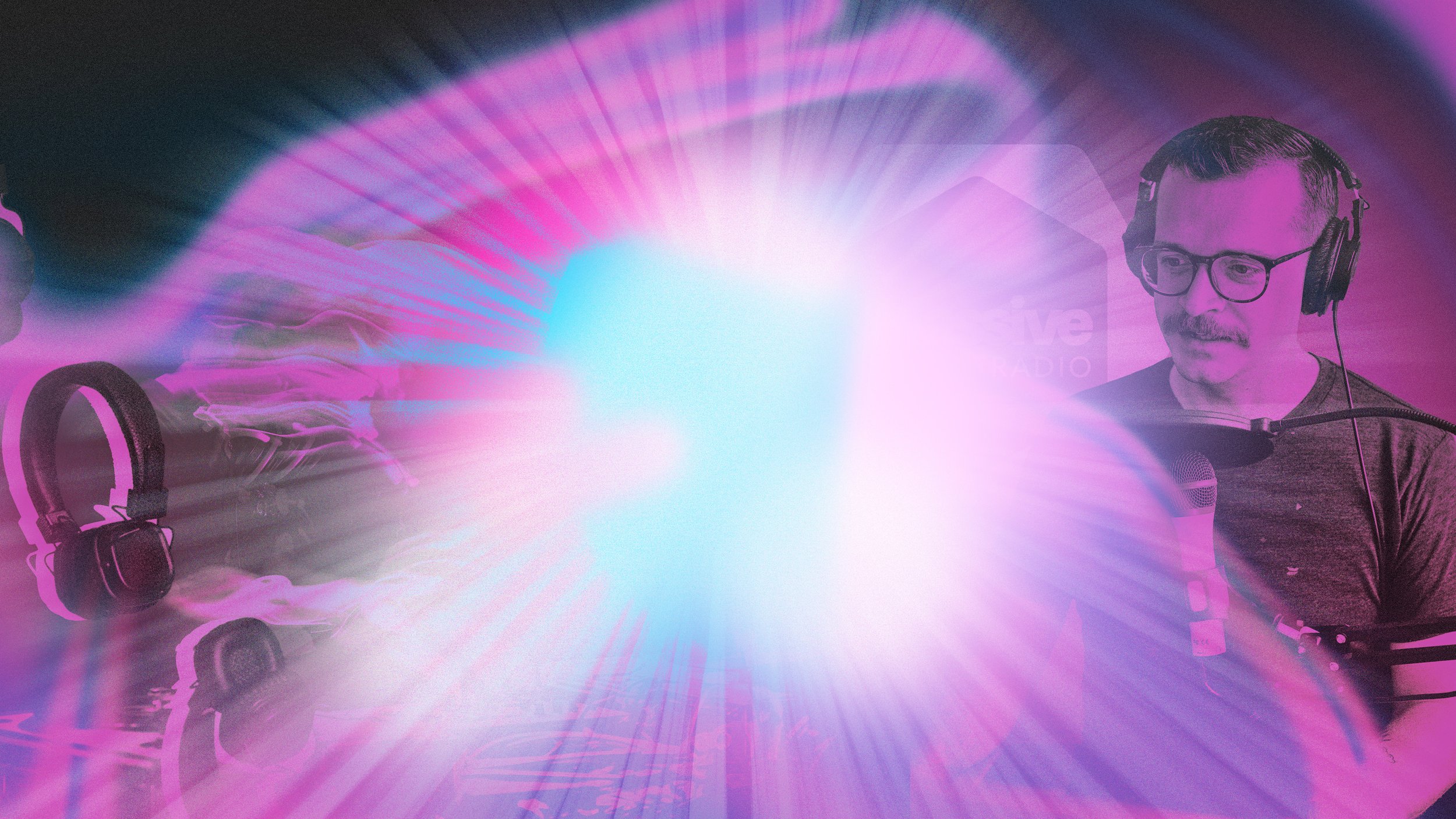
What’s new on the PVC Hub
The Hub is your new favorite hangout. Discover new music and artists through our shows, jams and podcasts or even master your equipment with our rich collection of tutorials.

BEHIND THE SCENES WITH
IKIGAI COSMONAUT
Ikigai Cosmonaut -
“My first premise is to not make any pre-programmed decisions when approaching my creations. My music comes directly from exploration, both in terms of emotions and my relationship with the gear I choose to use.”

Introducing our favorite Ikigai Cosmonaut who recently graced us with her debut Album: 'Singularities'. Greetings, dear friend! We hope this interview finds you in high spirits. Before we delve into the musical wonders of Ikigai Cosmonaut, can you share the story behind the inception of this project in 2019 and the driving force that led you to start this solo instrumental music project?
From a very early age, music was present in my life, not just as a listener but as a musician myself. I've started to play guitar as a kid, and even as a child, it wasn't enough for me to try to play the music I heard, I always pursued composing original themes, explore sonic textures, building my own instruments and storytelling.
I knew I wanted to make instrumental music even when, as a listener, I barely had access to this particular style. My first influences were bands, so I had the idea that the next thing to pursue as an artist, was to meet other musicians and join one to extend other visions to grow myself, but the time has passed and that never happened.
Later on I add keyboard playing to my experience, which felt more natural as an expression for me, but it was when I had the chance to try the Machine from Native Instruments for the first time that producing clicked to me. I got myself the Micro I and started exploring music alone with it.
I kept music as a hobby on second plan. It is when I felt in love for electronic music that I started to get interested on music production and realized that trough digital I could do it by myself.
Ikigai Cosmonaut, started unintentionally in the first place. As a joke with a friend, I decided to make a cover of a track that I hated with the purpose of proving that we could make a personal approach to every type of music and flip it to something completely new and personal, and the first track “100 Explosão” of my first EP "Odisseia no Espaço Tempo", ( "Odyssey on Space-time”) was born. I totally felt in love with the process of producing one track and kept on going, until I realized that I had given life to an EP.
My grandfather was a “Fado singer”, and the thing he left us when he passed away was his music record on a few tapes, so I always saw art as a way of becoming immortal. I took that reflection and inspiration and decided to release the music I had created. At this point I took myself more seriously and i felt that I started this project too late in life, so I kept on working on music.
I needed a name which reflected the impact that music has on my life, and then I created my instagram account so I could have a specific place to share my work, and that had a big impact for my personal growth as an artist. The place I thought that would be meant to share my work with friends, really fast turned into a place where I did meet other creative people that supported me and inspired me every day. This alone helped my confidence and desire to do it even more. The Ikigai Cosmonaut project begun as an "inevitable accident", as as extension not for what I do but what i really am .
I realized that in the passed, I was too afraid of making music and taking myself serious about it, because I was on a spiral fear of what could go wrong and maybe loose the biggest passion in my life, mostly because I didn’t knew anything technically about it, but now I know that nothing can go wrong as long as I keep loving the process.
Making music for me was and it will be a learning journey, and a way of expressing myself and putting the best I have to offer at the present time, with no rush or expectations.
How has your journey as a self-taught musician since childhood influenced the evolution of Ikigai Cosmonaut's sound and style?
There is a well-known expression that says "necessity makes the artist", and I believe that this somehow fits me well. I never had any musical training, so as a consequence I always felt free from rules, and that somehow translates into my style.
Since I was a child, I have always trained my ear to follow rhythms, tones or combine melodies, so now as a producer I'm not afraid of combining notes that don't theoretically make sense, or creating rhythms that don't correspond to standard patterns, or even creating songs structurally outside of the usual expected formulas.
In a way, I feel a little privileged in the sense that ignorance ends up depriving me of some fear. I believe that musical training is important as any major source of knowledge in general, however I feel privileged not to feel trapped by concepts predefined by someone other than myself.
What I feel and what I ear are the only truths that I follow, and as long as what I create sounds good to me, I am not afraid of making theoretical mistakes, because I don't know how to identify them either.
I think that this freedom in technical terms combined with what I like as a listener has a direct impact on the way I create. The desire to learn more about music or gear, is one thing that as a self-taught artist impacts my music the most, and that has been my drive to make music.
So I use this search for knowledge as an unlimited source of inspiration to me.
Your sonic landscape is described as rooted in instrumental experimentation, oscillating between fragility and aggression. How do you approach this delicate balance in your music?
Honestly, this balance, when it occurs, happens naturally and almost as if by accident.
Usually, when people talk to me about my music, they assume that I make a conscious decision regarding my music fluctuating between musical styles, intensity or aesthetic choices, but the truth is that this happens naturally, and I almost never chose to do it rationally.
I only produce one song at a time, and I never move on to another without finishing it, so this balance results of the combination of what I feel emotionally over time and that change. My music ends up summarizing a space-time for my feelings, so aesthetically speaking, it's not really a pre decision option, it ends up being more a consequence itself.
I believe that fragile and aggressive are more complementary than opposites. If we think about, aggressiveness, when pushed to the limit, reaches a fragile point until it breaks and those fragments become something that can be aggressive again.
I think this cycle attracts me in a certain way, and as a listener I have always been pleased by that aesthetic combination as well.
For me, it's important that music reaches different sensations, music and felling are connected, and it is almost impossible for me to express myself without the two, so I let both live in my universe as an extension of who I am.
Could you share some insights into your creative process when translating intangible emotions into tangible auditory experiences?
To be honest, this translation is something more personal than intended to be transposed to an audience itself. Generally, I choose concepts to portray and put my interpretation on them.
I think about what they mean and how they would sound and I try to recreate a soundtrack for something visual that occurs in my head. For me, making music is like scoring an idea, initially having my interpretation of it and explore it trough sounds.
The experience of listening is always something very personal and subjective, I don't do it with a purpose to cause something to the listener at the first place. For me, it’s important that the sound itself corresponds to my idea and felling about it, in the hope that this will later reach someone, whether does it or not.
Perhaps it have a selfish idea about making music, but I do it for myself. I only do what for me feels right to tell the story I want to, and I let the outcome reaction in second plan.
I think that's the beauty of instrumental music, a sense of free interpretation.
Your artist biography mentions that your music is the "unfiltered personal truth, untethered by constraints." How do you maintain this sense of artistic authenticity in your compositions?
My first premise is to not make any pre-programmed decisions when approaching my creations. My music comes directly from exploration, both in terms of emotions and my relationship with the gear I choose to use.
I don't restrict myself to something I want to do, but above all, I completely embrace freedom and accept whatever, at the moment of creation, comes my way. I know what I like, and at this moment I have some type of sounds that I usually explore in my music, however I never close my door to happy accidents or combinations that I initially didn't decide to use.
Technically speaking, I never start a track the same way, I don't use a formula like composing a drum beat or a lead first, for example.
Usually I create a small loop and keep adding instruments and sounds until I'm happy with that combination, and I assume it as my first sketch of a track. Then I work around that idea, and sometimes the track changes drastically. Which sometimes leads me to start a song from scratch based on that newborn, and others I try to glue opposite ideas together and that alone become one track by the process itself.
I think this personal truth comes from creating in the present moment and accepting what I feel and the decisions I make, regardless the deviating off the initial starting point of my previous ideas. I have this vision of creating like a “jazz improvisation jam”, where I assume several roles as an instrumentalist that keeps adding something new along the process, and trough trial and error I keep whatever works for me.
I usually say that throughout my process I talk to the music, and it tells me back what it wants to be and where it wants to go, and I just allow myself to pursue that.
Were there specific challenges or creative decisions you made to ensure a balanced and impactful emotional journey throughout your latest album “Singularities”?
Perhaps the choice of the concept of the album ended up being the most impactful for its journey. I consider myself an innate observer and thinker, and in a world that currently almost demands a type of standardisation, I found it important to portray and highlight the opposite as being the authentic and organic truth that makes things significant and special, the singularities.
Being curious, I have always felt attracted and fascinated by everything that is unusual and irregular, so, even before moving forward with the creation of the album, there were already some themes in my head that I wanted to address previously, so it made sense to attribute a “singularity” as a motif to each track, either in its truth, or in the interpretation that I decided to attribute to it.
In the concepts behind each track, the emotional charge fluctuates between something denser and lighter also, so sonically my aesthetic choices embraced the weight that each theme lived by.
In a way each of them brought the emotional impact that belong to them alone, creating a journey while listening them together. So one of my decisions that I end up putting a lot of thought when I finished the tracks was the order I choose them to be listened to. That decision alone made me leave two tracks outside the album, “Mycelium” and “Kraken”.
I was happy with the outcome of them and the way I approached their concepts, but they impacted the fluidity I intended for the whole, so I cut them off. My main focus, in the end, was to try to recreate a sensorial crescendo, and most important a unity combined by several emotion density.
Also, along the album composition I took a lot of big breaks between some tracks, I've learned that silence and distance is very important to creativity and to a critical opinion about the work itself. So I took the decision to be among nature for a few days for several times, in the search of reconnect with myself, my creative process and also comeback to the home studio with a clear vision about what I wanted to do.
I thought a lot about this being my first album and the importance of it, and my approach to balance it along the tracks came as a result of the question "if I deleted all my previous work, what would I do now to represent my learning and choices about my journey so far?", and "Singularities" born.
Do you have specific tracks in "Singularity" that hold a special place for you, either due to the themes explored or the creative process behind them?
This question is complicated, since I have a special and intense relationship with each of them individually, so maybe I will share a bit about the story behind the track "Situs Oppositus", the Singularity which the concept has been with me for the longest time.
A few years ago, I met a musician whose artistic name was "Inversus", and I did asked him about his choice, so he explained to me that he was born with a rare genetic disease called "Situs Inversus”, also called “Situs Oppositus”.
This is a congenital condition in which the major visceral organs are reversed or mirrored from the normal position. In his case, since his organs are completely mirrored, the condition do not affect his normal life in any way, in fact he only discovered he had it late in life.
I never saw him again after this share, but I never forgot about this condition that left me hooked to know more about it, so when I choose the general concept for the album I knew that somewhere I wanted to include this concept as a track.
Creatively, the track already had a certain jazzy vibe, when I named it, and I did a small bridge between this rare condition and my relationship in terms of musical genre throughout my path.
Before I start producing music, the style I imagined myself creating would be a combination between two of my favourite musical genres, jazz and electronic, but my work lead me to somewhere else.
I hugely respect jazz genre, so in a way I am a bit afraid of perusing it myself alone, even if some” jazz is hidden" on a few things over my work.
So I thought that this concept crossed the combination of what my music supposed to be in my previous imagination, but also the idea that one genre can be flipped with another and “still work” at the same time. Somehow I built this electronic jazzy vibe, so i had found my "Situs Oppositus" inside my work and on the album.
This track almost didn't survive to the final cut selection, but I'm glad it did. It turned out being a special track on the album, and one of the more singular ones.
What’s you favorite piece of gear in your studio at the moment?
The device that I've felt in love recently is the Drum Computer and Synthesizer "Syntakt" from Elektron. Although I haven't used it on my released music yet, this is my favorite device I've ever owned, in the way that it fulfills my needs and likes all in one.
I love the sounds that I can reach with it, the sequencer and the workflow, it's very user-friendly, also portable and totally capable of making music using it as a stand alone. I love to explore one device at a time and I see gear as a kind of micro universe where I can be lost in, so the thing I value the most about gear is versatility and utility.
It is a fun box but also a very usable and a capable one, so its the perfect match on music creation in my eyes. The other thing I love about it, is how fast I get results in terms of sounds that match not just what I like to produce, but also what I like to listen.
In general, all Elektron devices that I owned, had and have an important role of what I'm becoming as a musician today. My workflow changed a lot and I gain a new vision about creativity, sound design, simplicity, working with limitations, and I also end up transposing that knowledge not only to other gear as the DAW I use as well, so I'm glad I had the chance to give Elektron a try one day.
Also, about the Syntakt, I feel that we are both at the beginning of our potential to come. As Elektron tend to do, I believe the unit will be improved and filled with new features over time by firmware updates and that excites me a lot. At this point, I think the workflow and the creative options are superb, so I can't wait for our future journey together.
What can listeners expect from Ikigai Cosmonaut in the future? Are there upcoming projects, collaborations, or new directions you're excited to explore?
The future is uncertain and without fixed plans at the moment. My first album has just come out, so now I want to explore all the new gear I've acquired throughout this producing time.
I bought some new synths and pedal effects that are waiting for some time and love, so at the moment I just want to continue exploring and rediscovering myself and keep on learning more about music production. I feel like I haven't even started yet, and I have everything to learn still, so I will embrace that for now, and for a while.
This past year I had the idea of starting to explore and record bigger jams and maybe sets, with the aim of focusing, learning and putting together a full dawless setup where it would be possible for me to perform with, but the idea ended up fading and It didn't happen.
This is one thing that I would like to approach with time, because I never explored playing dawless for long periods of time, and I would love to see how it would impact my creativity and technical skills. But this is a personal curiosity not a future goal, so I will wait to see if that felling kicks in again in a near or distant future.
So my only plan for now is just to keep on making music, improving myself and mostly have fun while doing it.

Fundraiser Compilation
Minimal City Vol. 3
‘In this third installment of Minimal City, our artists embarked on a unique journey, crafting tracks using an array of samples and field recordings gathered from their respective surroundings. These sources range from the ambient sounds of shops and restaurants to the whispers of nature and the vibrant conversations of people, all ingeniously woven into their tracks.’

SPOTLIGHT
FEDERICO SAUTER

Berlin-based German-Costa Rican composer Federico Sauter writes music that delivers intensely emotional content, characterized by contrasting sections that reward dedicated listeners.

Federico Sauter’s life is shaped by the tension of seemingly opposing forces, such as balancing his passion for software development and music or being part of two distant cultures —but never quite fitting in either. From childhood, he was trained in classical music theory and the flute; however, his views were shaken after attending Berlin Atonal in 2016. Memorable performances by SØS Gunver Ryberg, Alessandro Cortini, and Mi†ra created a conflict that resulted in a radically different approach to composition. The EP "The Return of the Cosmic Diaspora" —released as Fräd in 2020— is a tribute to sci-fi theme songs of the early 80s, featuring dark cinematic sounds with classical and modern compositional elements.
"Lockdown Diaries: Ambient Works for Subharmonicon" (2023) —recorded in 2021 but composed only years later— is an intimate portrait of the hopelessness of confinement. Featuring a dark analog sound, it consists of minimalistic elements that evolve slowly to powerful cathartic moments.

"Lockdown Diaries: Ambient Works for Subharmonicon"
by Federico Sauter
Curated Playlists
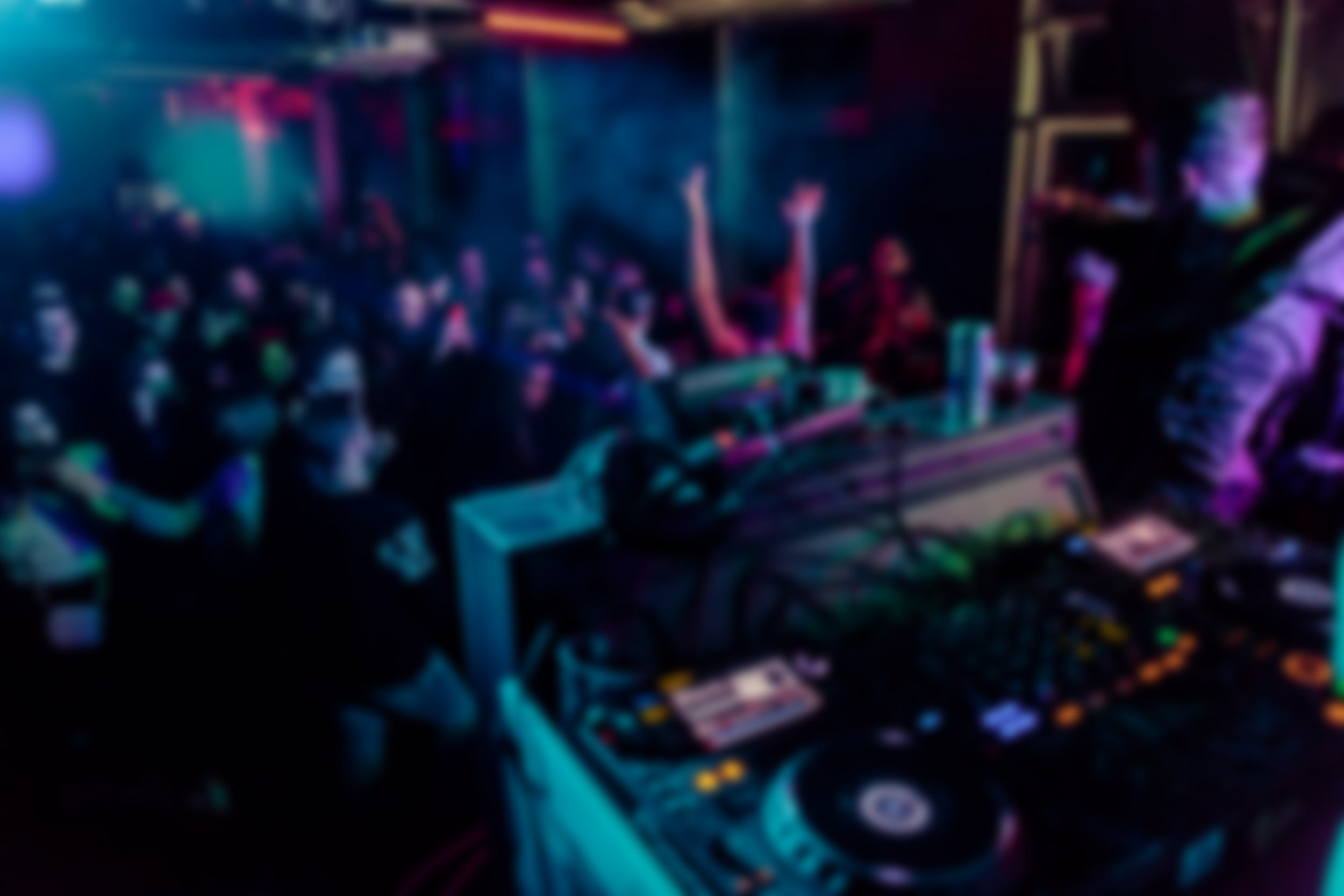
Featured
SONIC
PLAYGROUND
2023
“Thanks to all the curious sonic adventurers that showed up last Saturday night! We had a blast and a lot of fun sharing our sonic experimentations with you people. Showcasing what our collective has to offer to the world with our own rules and mindset is really worth the effort and dedication.”
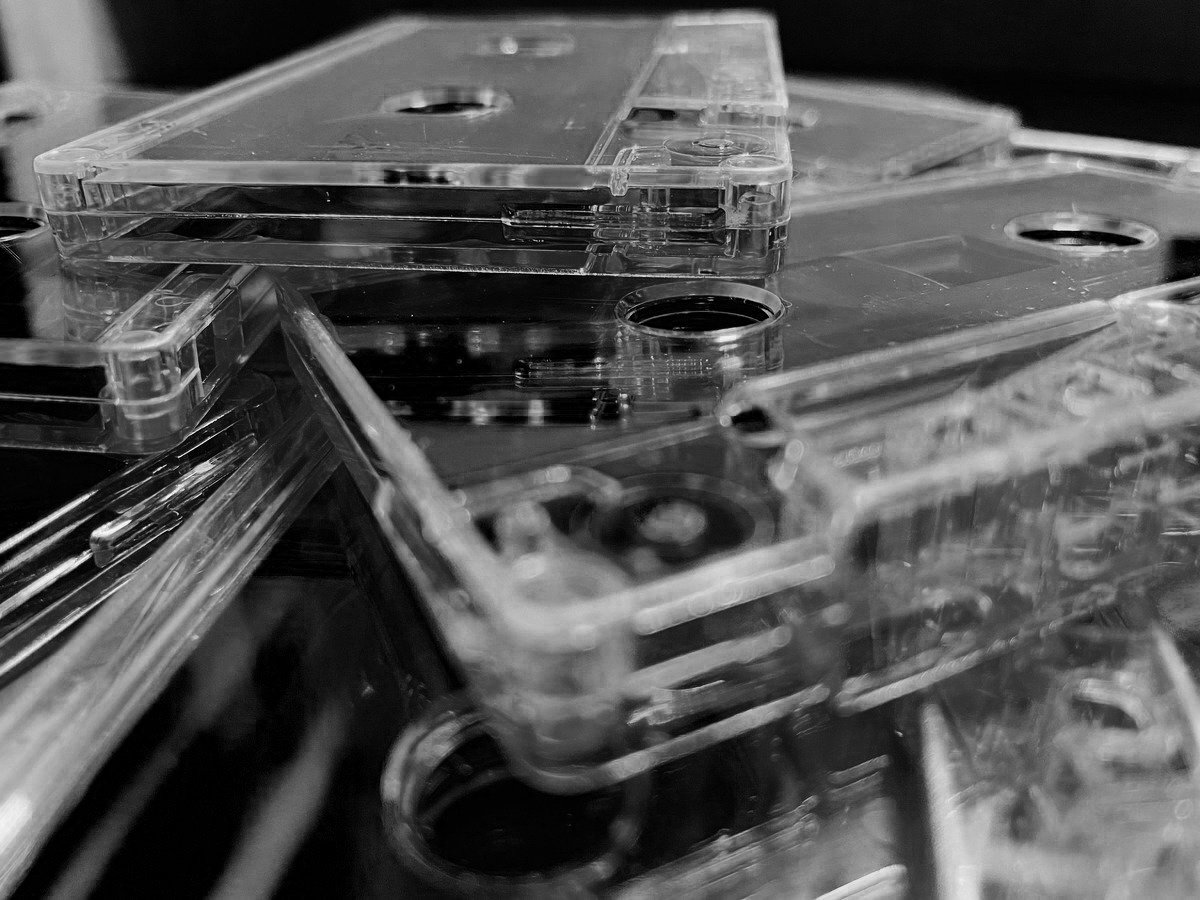
MERCHANDISE
-

Dad Cap
-

Hoodies
-

T-Shirts
-

Coat Jacket
-

Cup
-

Dot Bag
-

SOUNDWASTE (Sample Pack)
-

Second Sun - Cyclic Abstractions - Limited Edition Cassette
-

MINIMAL CITY Vol. 2 - Limited Edition Cassette
-

SFTPA - The Endless Walks Towards a Settled Mind - Limited Edition Cassette
-

Rupture // Rapture - Perpetual Motion - Limited Edition Cassette
-

ELEMENTS Vol. 2 - Limited Edition Cassette
-

SFTPA - Standstills II - Limited Edition Cassette
-

Void Castor - Frequencies from the Lost Coast - Limited Edition Cassette
-

Second Sun - Insomnia Tapes - Limited Edition Cassette
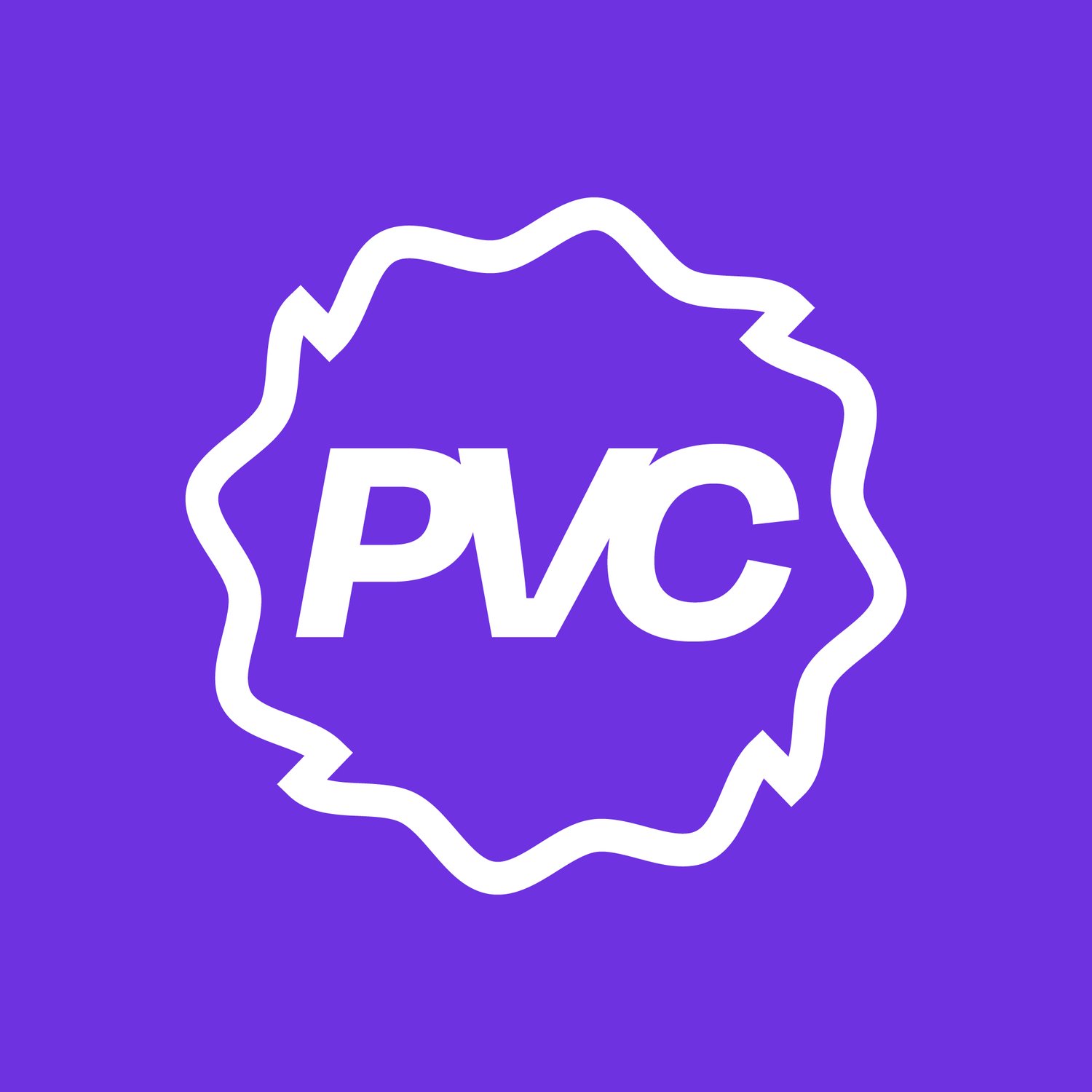






























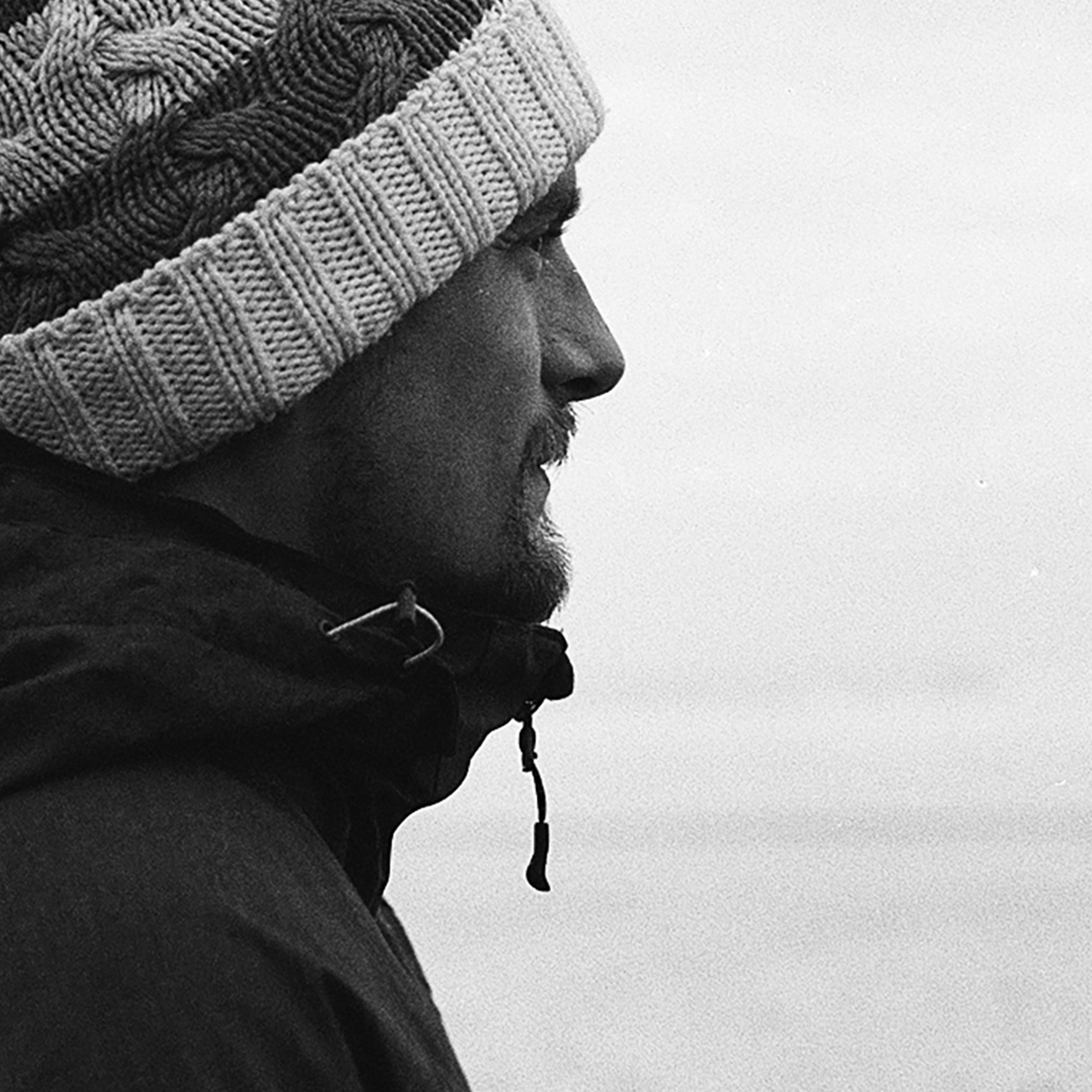






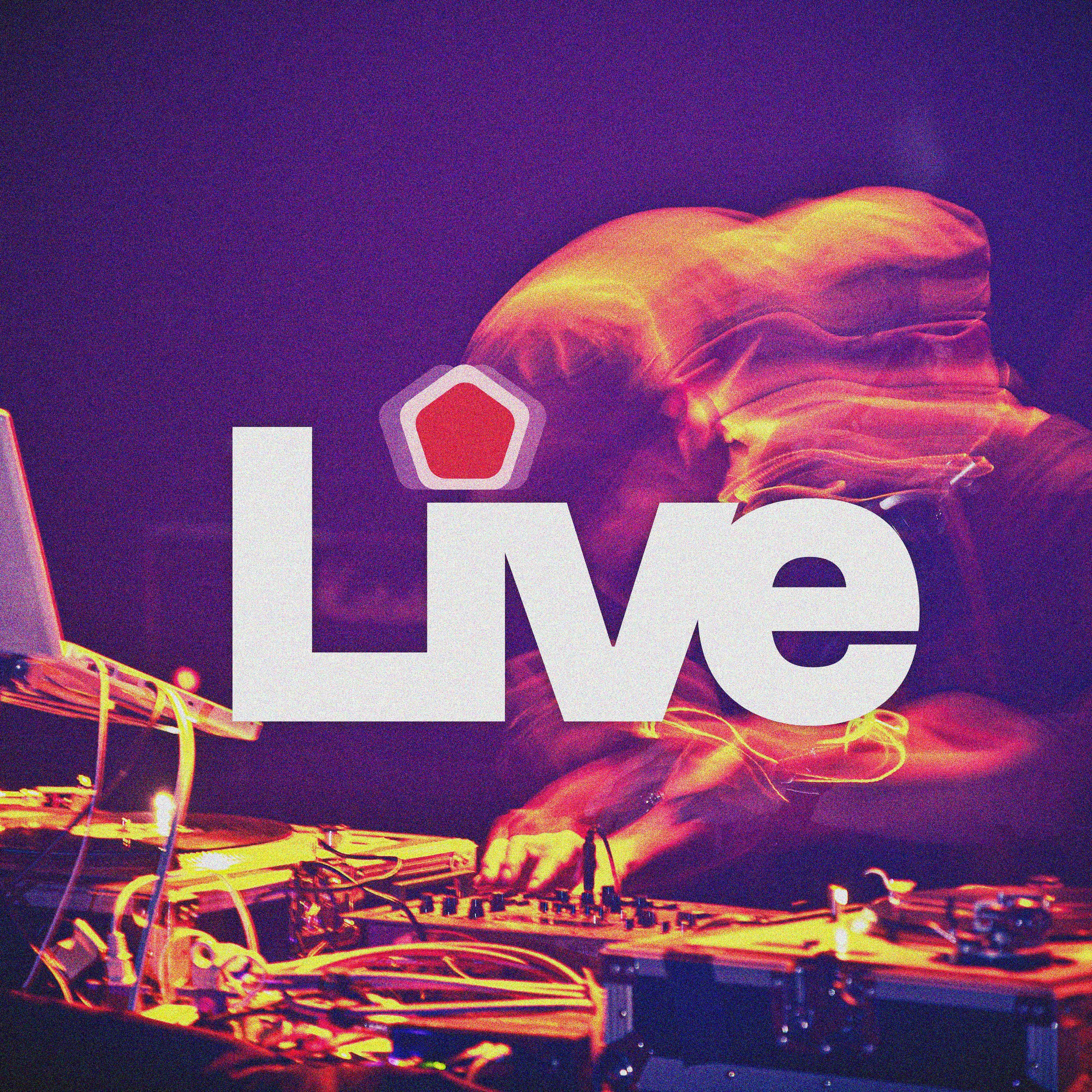





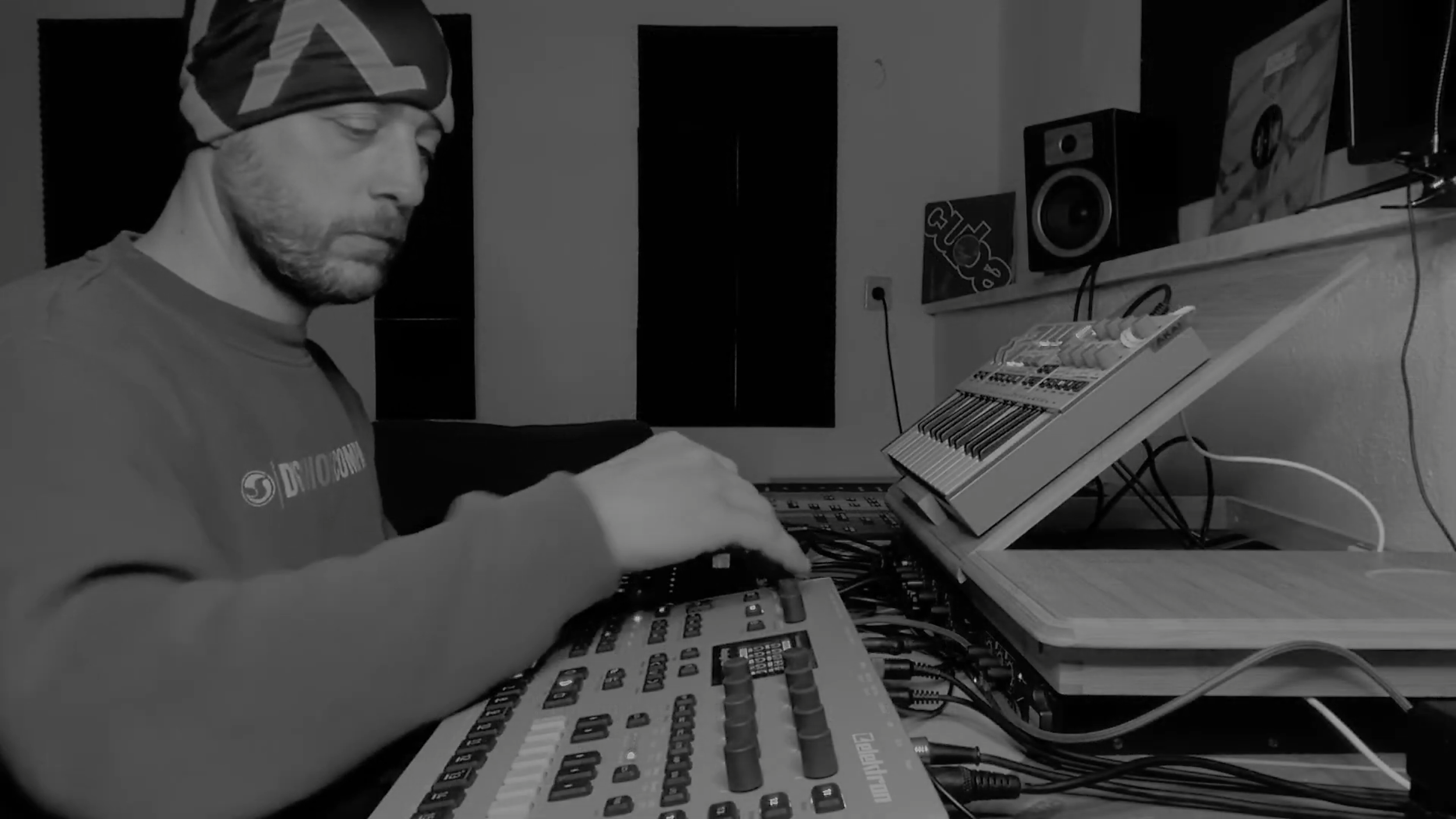
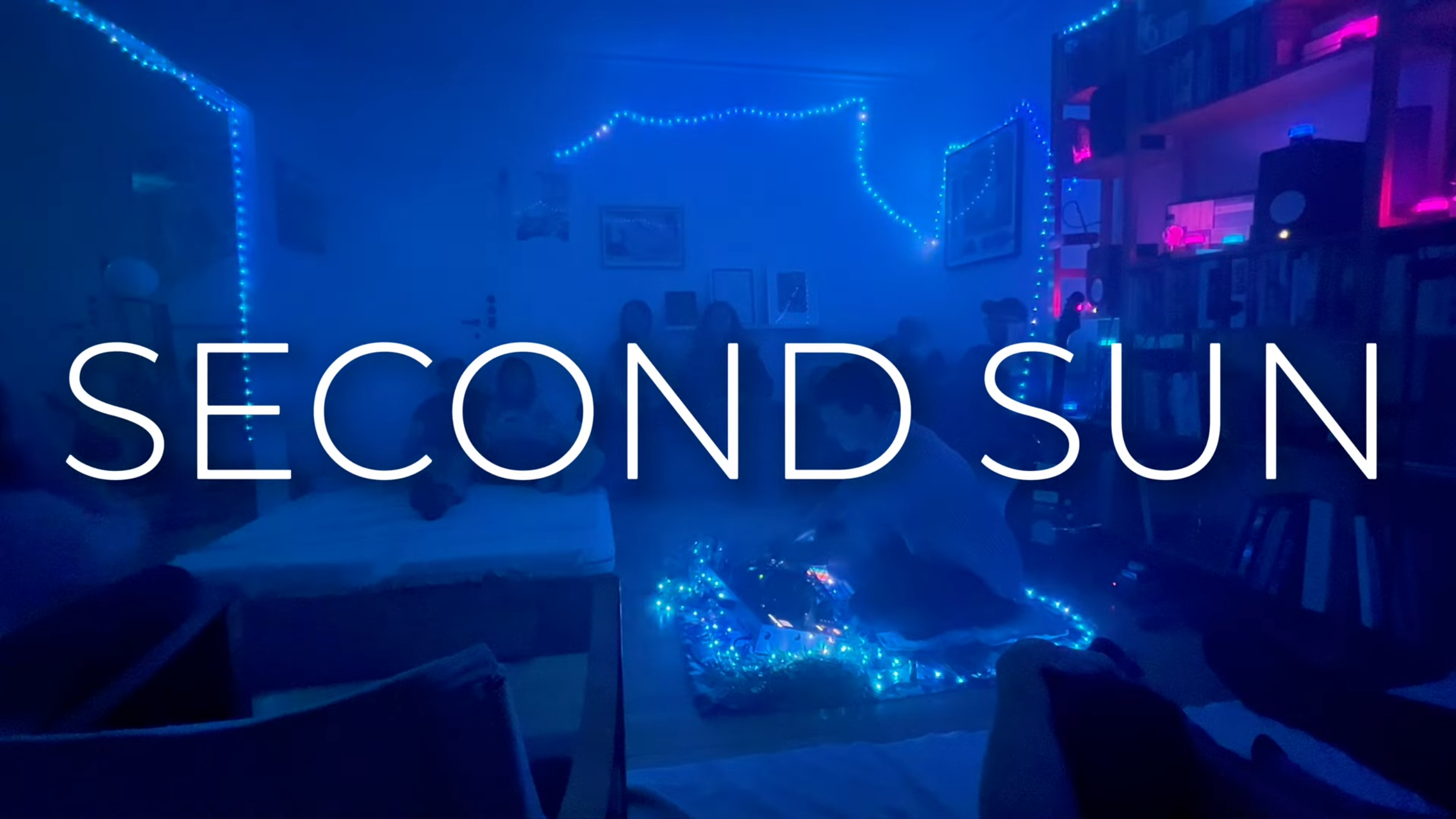
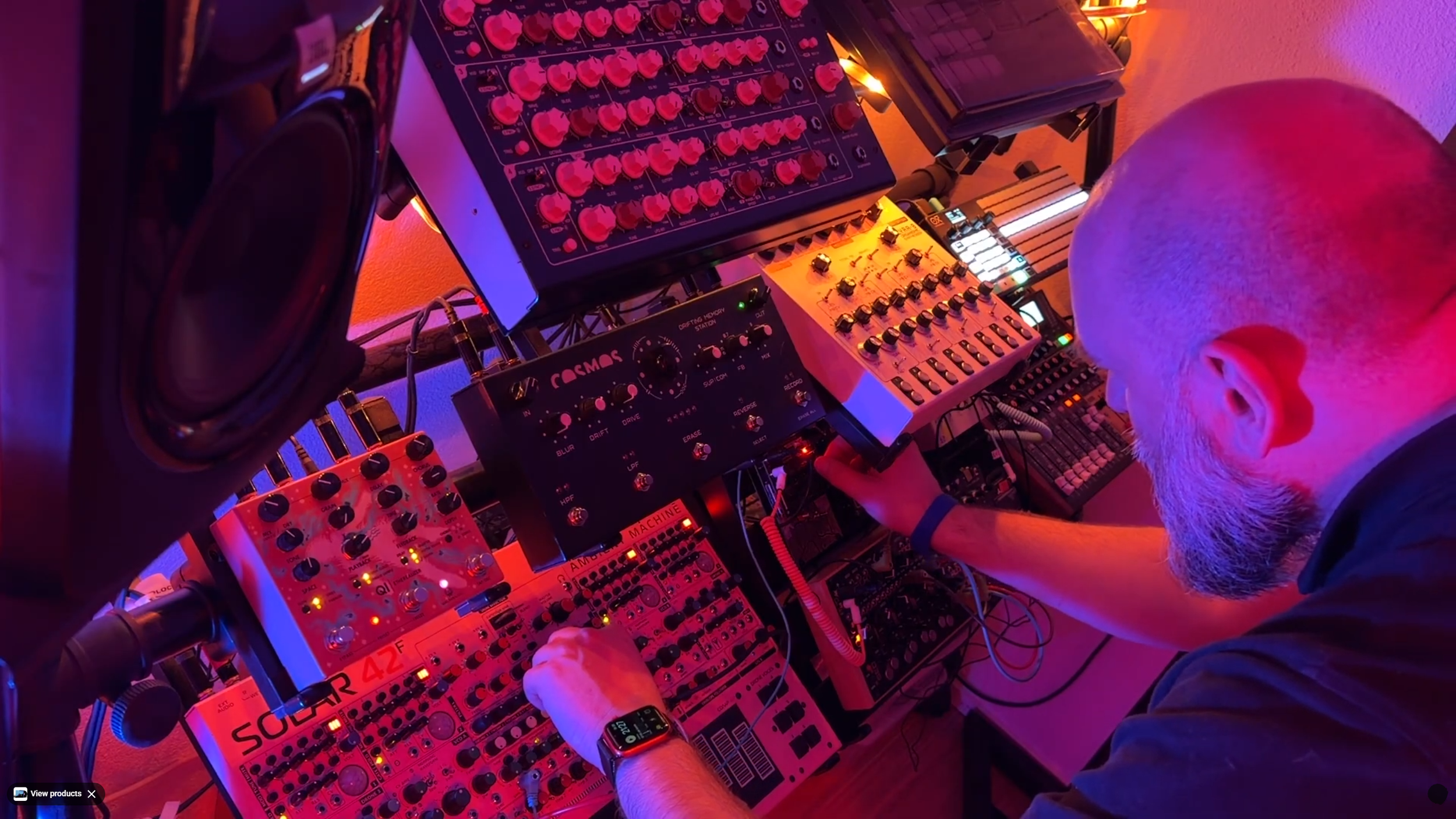
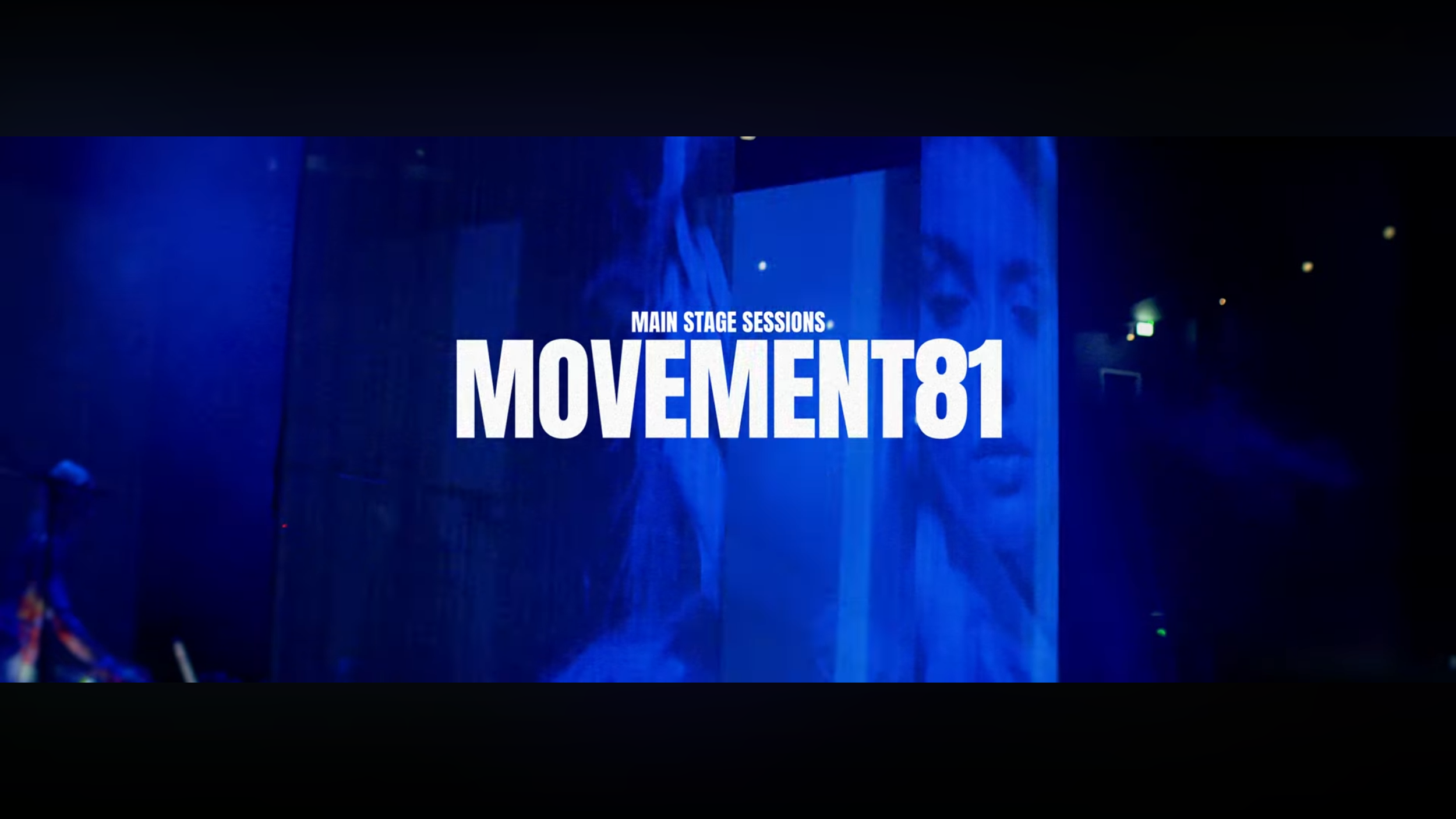
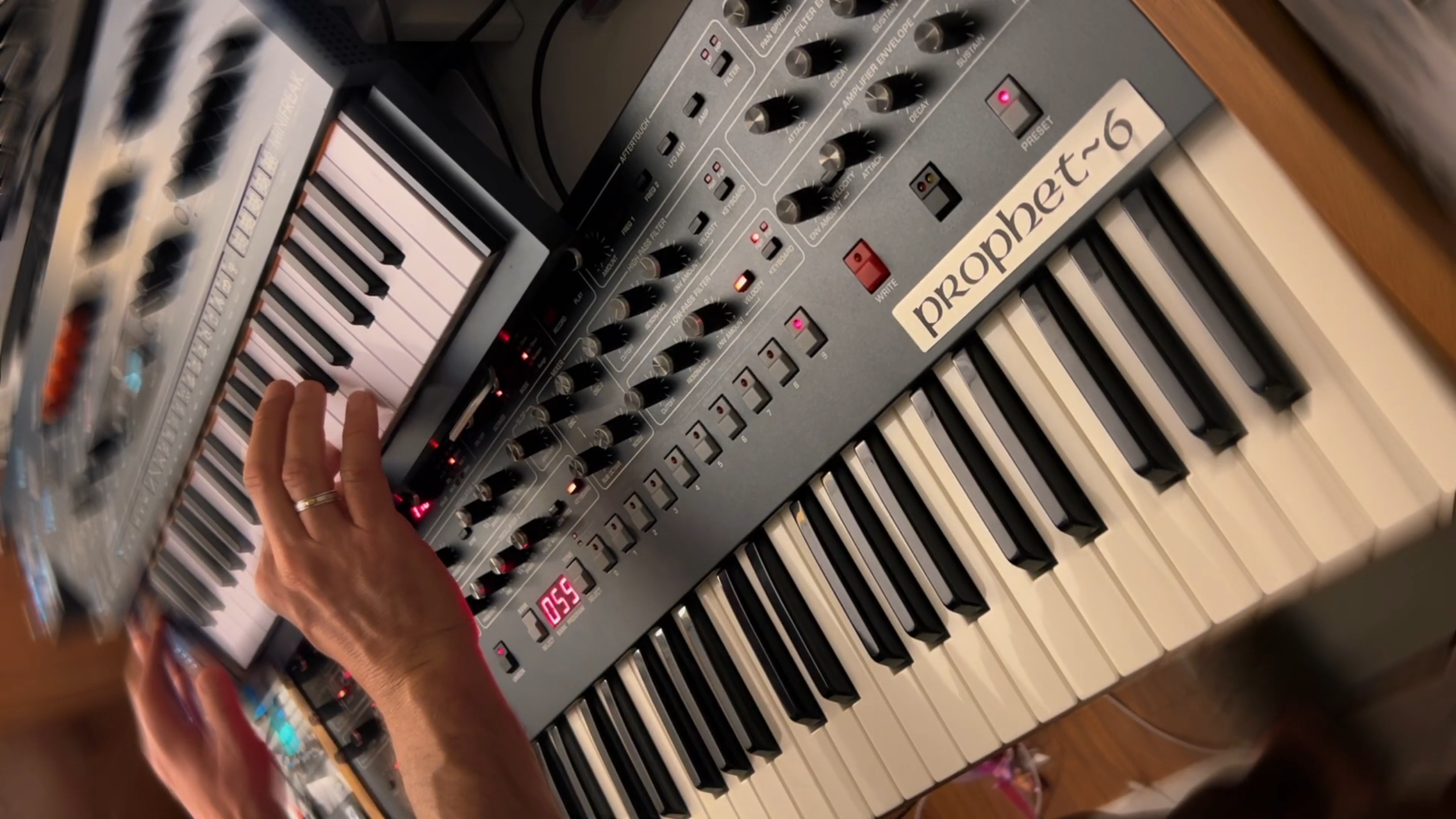
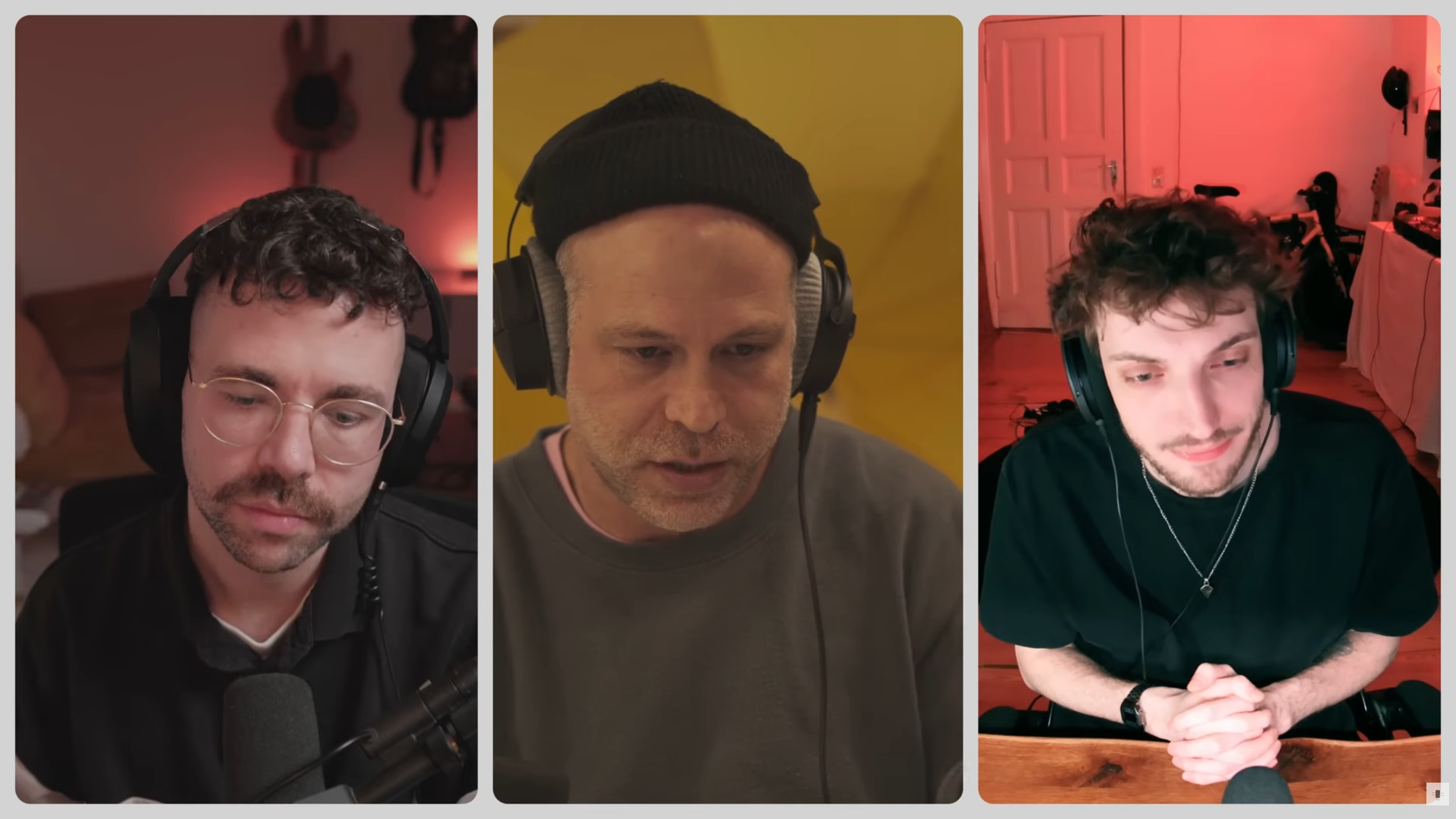
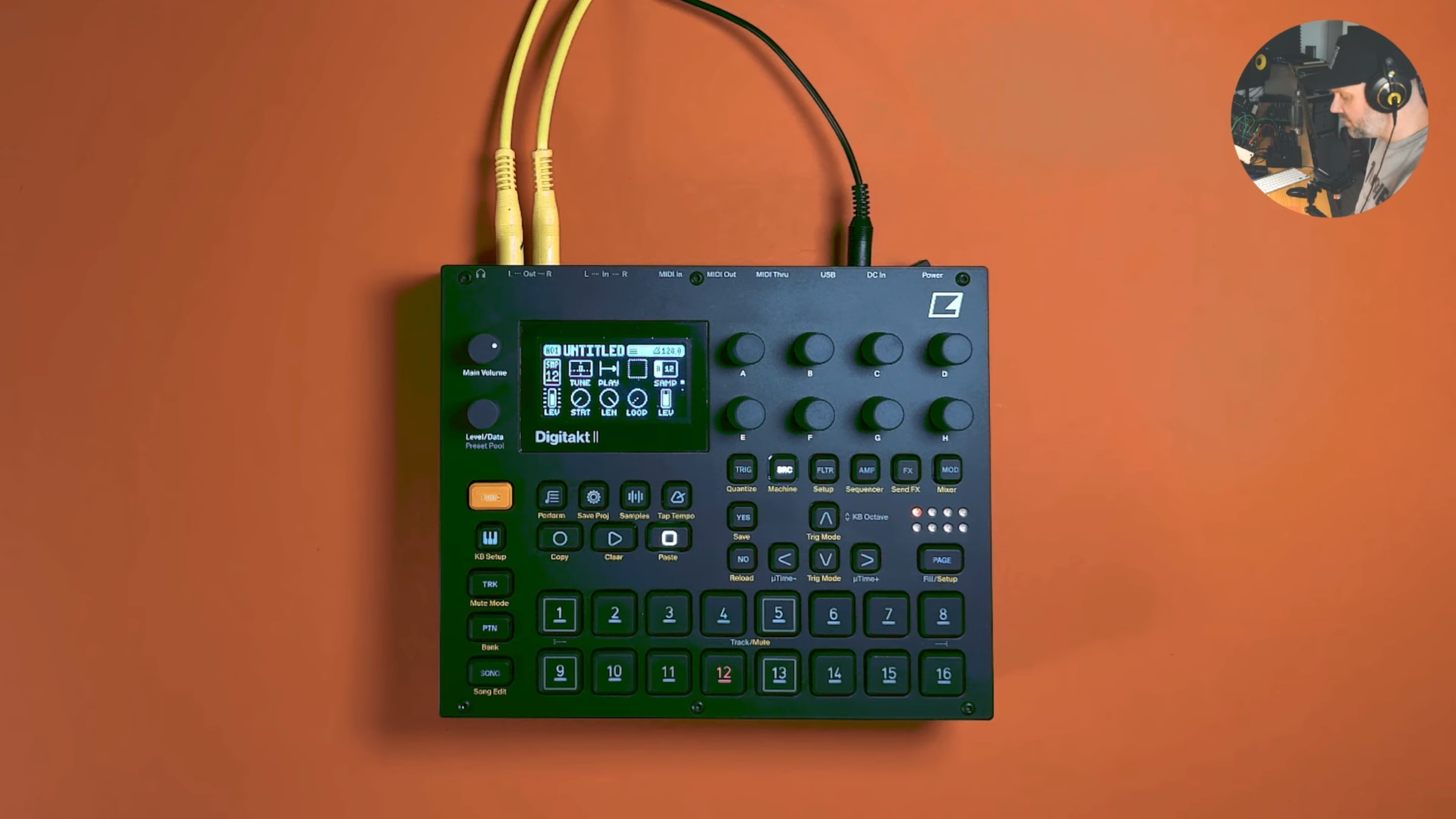
![No Comply [dark beats]](https://images.squarespace-cdn.com/content/v1/620278048bf0307f4b88589b/1769479602776-2OYD2EGQP9SR2M14GWGI/Screenshot+%28331%29.png)
